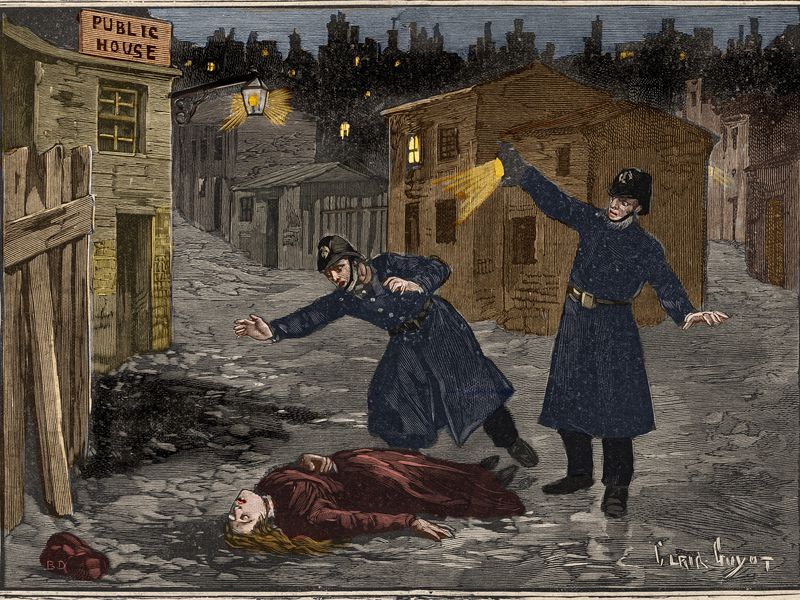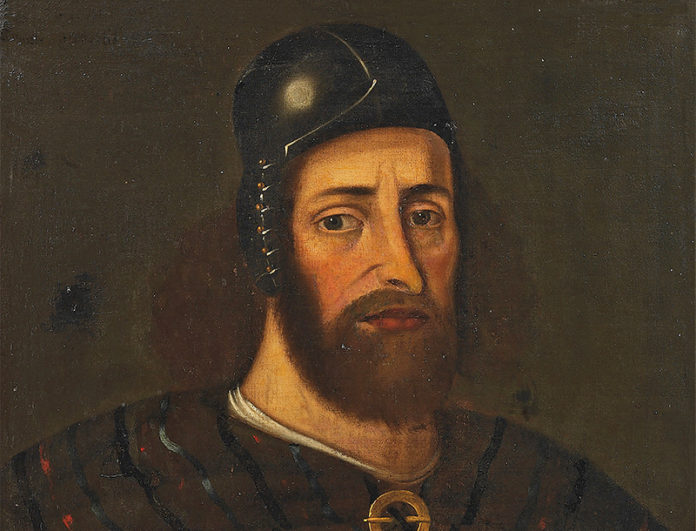From Robin Hood to Jack the Ripper, one of the best parts about living in an ancient, multi-cultural society like the UK is that everywhere is teeming with history. Wherever you look there are old legends and stories waiting to be discovered, which makes travelling and exploring that much more interesting. At London Dungeons you tread a perilous past into a world plagued by torture, beheadings and glorified monarchy, while The Globe has you travelling back in time, as you find yourself as a spectator watching Shakespeare’s ‘Romeo and Juliet’, tears welling in your eyes. Your trip to Hampton Court sees you as a lady in waiting in Anne Boleyn’s court, watching her intelligence, wit and passion saturate every room, and at the Tower Of London you watch her take her last breath, as King Henry VIII swoops away a new Queen Jane Seymour into his tyrannical kingdom. This post is dedicated to understanding a little more about the most famous and legendary British Britons scattered throughout our chequered history. If you’re interested in mythology, history or travel, hopefully, this list will help you discover somewhere new and learn even more about our incredible country.
Robin Hood

No Legendary Britons List Is Complete Without Robin Hood
Let’s start with one of the biggest British names in the world; Robin Hood. Robin Hood’s legend is one of taking from the rich to give to the poor, hero of the people from hundreds of years ago. The only problem is that there is a lot of speculation about the truth behind the stories, especially considering countless different stories appear in different counties throughout the country. In some versions of the legend, he is depicted as being of noble birth, and in modern time he is sometimes depicted as having fought in the Crusades before returning to England to find his lands taken by the Sheriff. In the oldest known versions he is instead a member of the yeoman class. Traditionally depicted dressed in Lincoln green, he is said to have robbed from the rich and given to the poor.There have been numerous variations and adaptations of the story over the last six hundred years, and the story continues to be widely represented in literature, film and television. Robin Hood is considered one of the best known tales of English folklore.
One thing is universally agreed upon though, Robin Hood and his band of merry men had their base of operations in Sherwood Forest, making it the perfect place to visit if you want to discover more about the bowman who may or may not have existed.
Jack the Ripper

Legendary Britons like Jack The Ripper uncover Britain’s dark and murky past @smithsonianmagazine
From hero to villain, Jack the Ripper may be a gruesome serial killer but his name is nonetheless recognised and legendary. What we know about Jack the Ripper is limited, especially considering the lack of police investigation tools available at the time and one of the most notable parts of his legend is that he was never caught. However, in the years since the brutal murders, there has been further and further investigation, with ‘Ripperologists’ continually investigating the crime.In both the criminal case files and contemporary journalistic accounts, the killer was called the Whitechapel Murderer and Leather Apron as attacks ascribed to Jack the Ripper typically involved female prostitutes who lived and worked in the slums of the East End of London, whose throats were cut prior to abdominal mutilations. The removal of internal organs from at least three of the victims led to proposals that their killer had some anatomical or surgical knowledge.
Today, you can find out what they know where it all happened in Whitechapel London, through the Jack the Ripper tours available in the region. Be prepared for some gruesome and bloody details though as this one is not for the faint hearted.
William Wallace

Portrait of William Wallace, c.1700 (oil on canvas) by Scottish School, (18th century); 73.7×63.5 cm; Private Collection; (add.info.: William Wallace (d.1305), bust-length, in armour
inscribed ‘WW Baron Knight/of Eldersilie’ (upper left) ); Photo © Christie’s Images
A Scottish hero, immortalised through the infamous film Braveheart with Mel Gibson, William Wallace was a soldier and leader in the Scottish resistance against England in the 13th and 14th Centuries.Wallace is featured in memorials throughout the country, particularly because he died as a martyr, having been executed in London. This is a particularly good legendary Briton to investigate because Braveheart is far from historically accurate and you might find yourself being pleasantly surprised by what you learn about the man.Along with Andrew Moray, Wallace defeated an English army at the Battle of Stirling Bridge in September 1297. After William defeated the British Army, he was appointed Guardian of Scotland and served until his defeat at the Battle of Falkirk in July 1298. In August 1305, Wallace was captured in Robroyston, near Glasgow, and handed over to King Edward I of England, who had him hanged, drawn and quartered for high treason and crimes against English civilians. As a result William became a figurehead for revolution, bravery and courage, tales of his martyrdom spreading far and wide to make him an iconic figure in British history.
Cities across Scotland have Wallace related museums and displays, though Glasgow is a hub if you want to find out more. Just be sure to do your research before travelling.
William Shakespeare

Widely considered to be one of our most legendary Britons
William Shakespeare was an English poet, playwright and actor, who has widely been regarded as the greatest writer in the English language and the world’s greatest dramatist.He is often called England’s national poet and the “Bard of Avon”. His extant works, including 39 plays, 154 sonnets, two long narrative poems, and a few other verses, some of uncertain authorship. His plays have been translated into every major living language and are performed more often than those of any other playwright. It’s hard to escape school in the UK without studying some form of Shakespeare’s work. The infamous author and playwright is hailed as the father of modern language and innovator of slang, with many of his works still viewed as literary masterpieces. From Romeo and Juliet to King Lear, The Bard was famed for his tragedies (Hamlet), Tragicomedies ( Romeo And Juliet) and comedies (A Midsummer Night’s Dream) which have all been ingrained in British heritage.
Whilst it’s easy to come across his work, there’s only one place to go if you want a true taste of what it was like during his time; the iconic Globe Theatre. The theatre hosts tours as well as traditional Shakespearean productions, creating the ultimate experience for anyone who wants to understand the legendary Britons work even more.
Florence Nightingale

Florence Nightingale is an example of a social reformist and political figure whose place in the legendary Britons list is rightly justified
Florence Nightingale is the most recent legendary Briton on this shortlist, but that doesn’t detract from her importance. As a nurse during the Crimean War, Nightingale wasn’t just an exceptional medical practitioner, but she was also an icon of hope in one of Britain’s darkest times.Nightingale’s work during the war pioneered modern nursing and sanitation methods, saving countless lives in a time when women were generally ignored and seen as inferior. Overall, her efforts helped solidify the role of women in nursing and her legacy is still felt today. She gave nursing a favourable reputation and became an icon of Victorian culture, especially in the persona of “The Lady with the Lamp” making rounds of wounded soldiers at night. Florence was also a social reformist, pioneering positive changes in health care, equal rights for women and fighting against deprivation and poverty. Her social reforms included improving healthcare for all sections of British society, advocating better hunger relief in India, helping to abolish prostitution laws that were harsh for women, and expanding the acceptable forms of female participation in the workforce.
Since her death, there have been countless tributes to Nightingale’s work, including the opening of a dedicated museum, where you can learn even more about this incredible lady.
I doubt that the names on this list will have surprised you, but I hope they have inspired you to learn a little more about these household names. In the end, these people somehow shaped the society we live in today, for better or for worse, and if we don’t study the past we’re doomed to repeat it.
Are You A Fan Of Any Of These Legendary Britons?
Disclaimer
*Collaborative Post
Leave a Reply